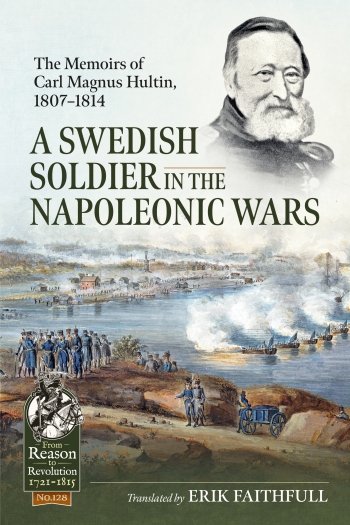-
Załączniki bezpieczeństwa
Załczniki do produktuZałączniki dotyczące bezpieczeństwa produktu zawierają informacje o opakowaniu produktu i mogą dostarczać kluczowych informacji dotyczących bezpieczeństwa konkretnego produktu
-
Informacje o producencie
Informacje o producencieInformacje dotyczące produktu obejmują adres i powiązane dane producenta produktu.HELION
-
Osoba odpowiedzialna w UE
Osoba odpowiedzialna w UEPodmiot gospodarczy z siedzibą w UE zapewniający zgodność produktu z wymaganymi przepisami.
A Swedish Soldier in the Napoleonic Wars is an important and rare memoir by a low-ranking officer. It contains lively anecdotes and stories of soldiers, commanders, and life on campaign from 1808 to 1814 in Sweden, Denmark, Norway and North Germany. Available for the first time in English, it provides a new perspective of little-known actions, small by the standards of continental Europe, but vital to our understanding of Sweden’s part in the war.
In 1808, at the age of 18 and whilst a student at Linköping High School, Carl Magnus Hultin enlisted as a junior officer in the militia, answering the call-to-arms in the nation’s efforts to stem the Russian tide before Finland was lost. He then transferred to the regular army as an ensign in the Jönköping Regiment. He took part in the ill-fated Västerbotten expedition against the Russians on Swedish soil in 1809 and witnessed the 1809 coup d’etat to remove the unpopular King Gustav IV Adolf. Following the ‘phoney’ war with Britain 1811–1812, he served in Mecklenberg, Holstein and Belgium against France and Denmark in the 1813–1814 campaign under Napoleon’s former Maréchal Bernadotte, who had been elected as Sweden’s Crown Prince. Finally, he participated in the 1814 Norwegian campaign that saw the Union of Norway and Sweden, which lasted until 1905. He remained in the army after the war, retiring as a captain in 1842.
Very late in life, he was persuaded to set down his memoirs, which were published in 1872. Two separate editions of the book were reprinted in Sweden in 1954 and 1955 with minimal editing after the expiry of the copyright 70 years after the author’s death. The editor’s preface to the 1954 edition noted, ‘The present volume is ... unique to the extent that it may constitute the only document of literary value from our history of war’, whilst the 1955 editor noted ‘the account ... was greatly acclaimed’ and that Hultin’s friends were ‘much entertained by his lively, sometimes rather burlesque tales about military life both on and off campaign.’
This translation, by a descendent of Captain Hultin, includes extensive explanatory notes together with maps and illustrations to support the narrative.








